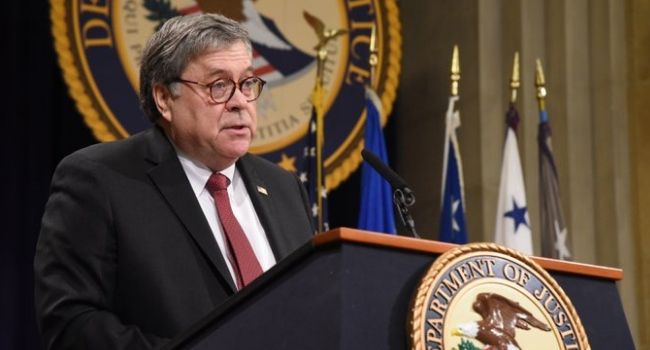
Attorney General Revives Feud With Tech Companies Over 'Warrant Proof' Encryption
Security experts and lawmakers say that creating a “backdoor” to unlock devices and messages would make those products vulnerable to hackers.
- By Haley Samsel
- Jul 24, 2019
During a speech at a cybersecurity conference on Tuesday, Attorney General William Barr spoke out against the tech industry’s practice of using encryption tools that can only be unlocked by the end user, arguing that it endangers lives and makes it more difficult for law enforcement to do their jobs.
Barr said that encryption can be a valuable tool when it comes to protecting information from cybercriminals. He objected, however, to tech companies’ refusal to create ways for law enforcement to access locked or encrypted devices when they are issued search warrants.
“Because, in the digital age, the bulk of evidence is becoming digital, this form of ‘warrant proof’ encryption poses a grave threat to public safety by extinguishing the ability of law enforcement to obtain evidence essential to detecting and investigating crimes,” Barr said at Fordham University’s International Conference on Cyber Security. “It allows criminals to operate with impunity, hiding their activities under an impenetrable cloak of secrecy.”
The feud is a familiar one for Silicon Valley and the Justice Department. Apple has consistently refused to unlock its products for law enforcement, including an iPhone used by one of the terrorists in the 2015 mass shooting in San Bernardino, California. The FBI and other agencies have also complained about the inability to decrypt messages sent through communication apps like WhatsApp, which is owned by Facebook.
Several tech leaders, security experts and other government officials say that building “backdoors,” or ways to decrypt messages and devices from the outside, makes it easier for hackers and foreign governments to discover those methods and get into the systems that encryption was meant to protect.
Sen. Ron Wyden (D-Oregon), who has spoken in defense of strong encryption methods for years, said on the Senate floor Tuesday that “you can’t only build a back door for the good guys.”
“Once you weaken encryption with a back door, you make it far easier for criminals and hackers and predators to get into your digital life,” Wyden said.
He added: “Today I fear, rather I expect, that if we give the attorney general and the president the unprecedented power to break encryption across the board and burrow into the most intimate details of Americans’ lives, they will abuse those powers.”
Gail Kent, Facebook’s global public policy lead on security, recently noted that allowing law enforcement access to devices would not prevent individuals from using other, newer services that American agencies cannot access, the Associated Press reported.
“It’s impossible to create any backdoor that couldn’t be discovered, and exploited, by bad actors,” Kent said.
In his remarks, Barr said the tech sector has the “ingenuity” to develop methods to provide secure encryption while also providing access to law enforcement, calling the current status quo “dangerous” and “unacceptable.”
“The costs of irresponsible encryption that blocks legitimate law enforcement access is ultimately measured in a mounting number of victims—men, women, and children who are the victims of crimes—crimes that could have been prevented if law enforcement had been given lawful access to encrypted evidence,” Barr said.
It does not seem as if tech companies will change their tune on encryption any time soon, or at least without regulations and legislation to compel them to. When Apple was criticized during the San Bernardino investigation in 2016, Tim Cook, the company’s CEO, said complying with a government order to unlock a suspect’s iPhone would set a precedent that put the data security and civil liberties of “hundreds of millions of law-abiding people” at risk.
“The only way to guarantee such a powerful tool isn’t abused and doesn’t fall into the wrong hands is to never create it,” Cook said.